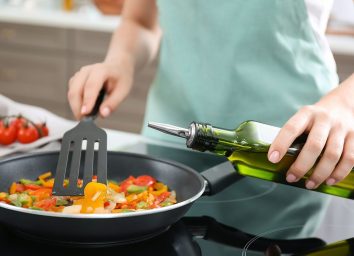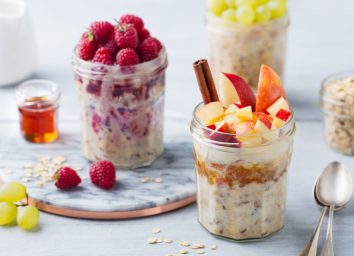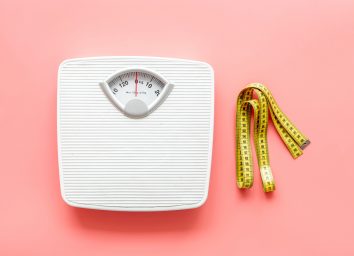4 Harmful Cooking Materials You Should Never Cook With
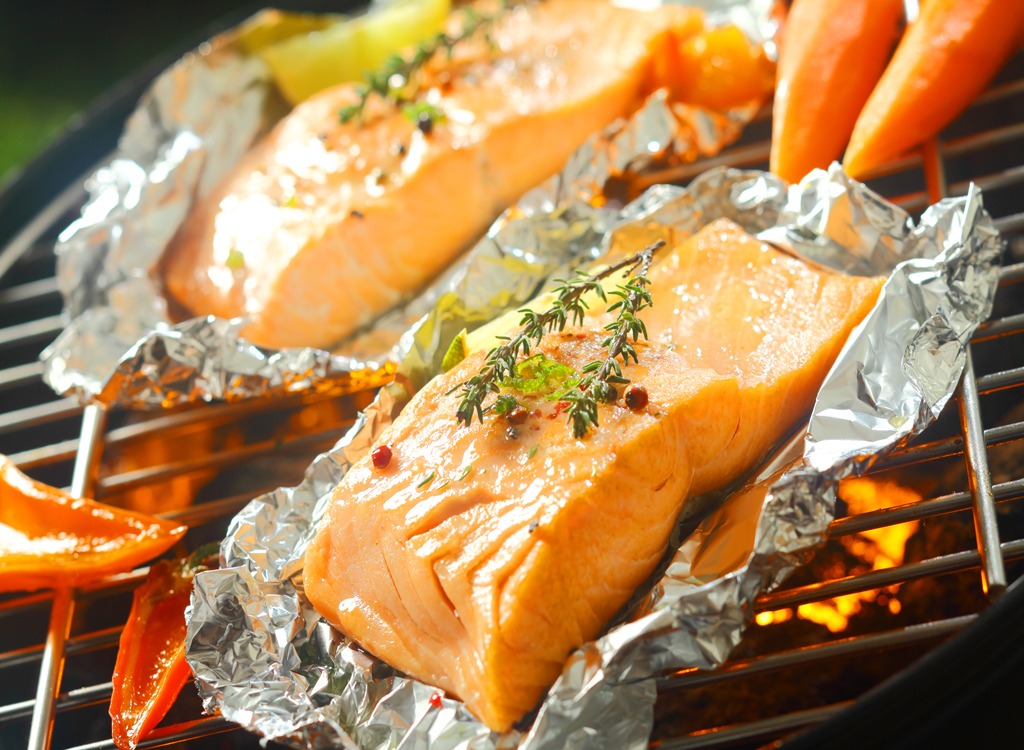
We here at Eat This, Not That! spend a lot of time talking about sketchy ingredients and calorie-filled fast food. And almost always, we wind up telling our readers they’re better off cooking their own meals at home. Though that suggestion still holds true, how you cook your food matters, too. And we’re not just talking about things like grilling over pan frying or using applesauce instead of oil in your cookies. We’re talking about the physical materials you use to prepare and cook your food. As it turns out, certain utensils, cooking accouterments, and pans you’ve likely been cooking with your whole life can have harmful effects on your health and weight. Mostly because they allow toxins to seep into your food or enable bacteria to thrive in your kitchen, putting your health at risk. Read on to know what materials to avoid when cooking to live a longer, love handle-free life.
Aluminum Foil
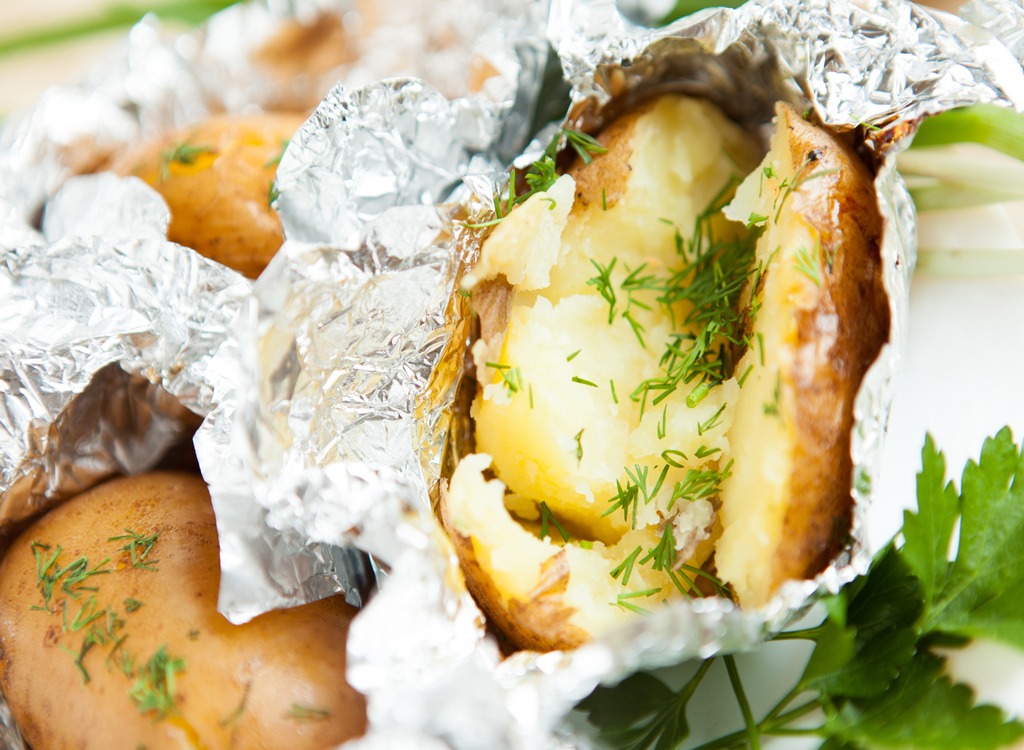
If you’ve ever roasted veggies or fish in the oven, you probably used aluminum foil. But before you go heavy metal again, listen up! Most aluminum cookware is super safe to use when cooking food because it’s oxidized. This means it is sealed with a layer that prevents the aluminum from leaching into your food. Aluminum foil, on the other hand, is not oxidized and when cooked at high temperatures, the risk of leaching is pretty high. This is especially true when cooking with acidic foods like tomatoes since they expedite the leaching process. Why’s all of this matter? A recent article from The Journal of Alzheimer’s Disease linked the consumption of aluminum to Alzheimer’s and other neurodegenerative diseases like Parkinson’s. So, use your brain to save your brain and stop using aluminum foil! Use parchment paper instead when wrapping food or simply spray down a glass pan for regular cooking.
Looking for even more safe and delicious ways to cook your food? Check out these 35 Healthy Crock Pot Recipes!
Non-stick Pans
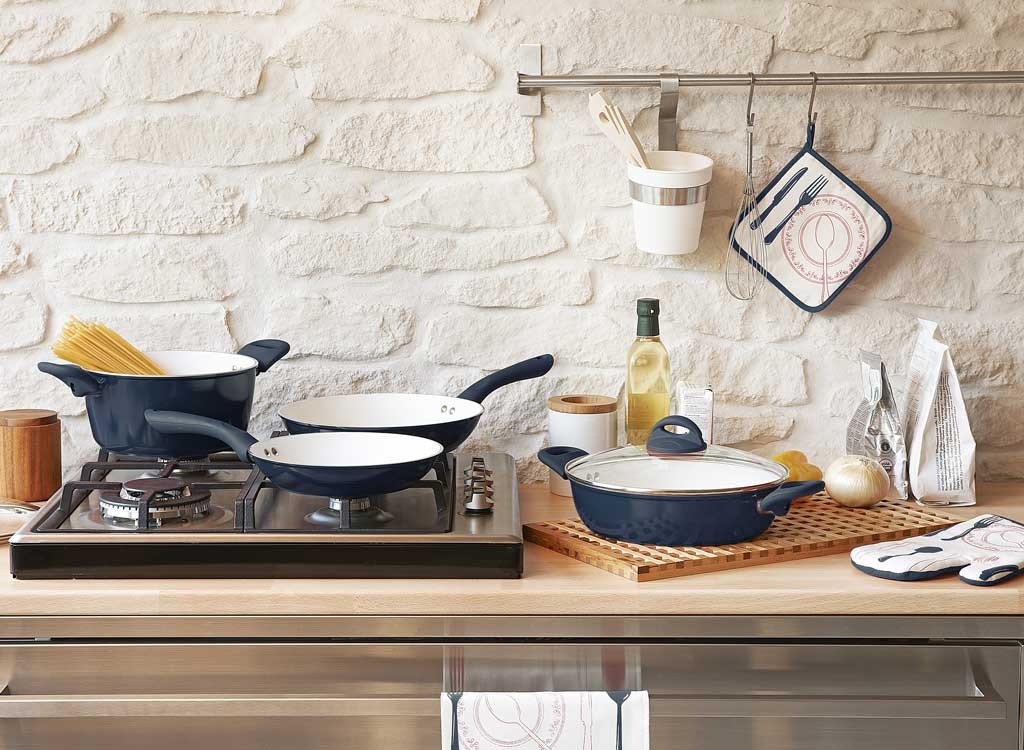
Fighting over doing the dishes isn’t just child’s play, even adults dread dinner cleanup. Which is just one of the many reasons the invention of the non-stick pan was considered a miracle among dish-duty haters around the world; it makes cleanup super simple, after all. But have you ever wondered what makes these pans so magical? Most non-stick pans are coated with Teflon, which is laced with something called perfluorooctanoic acid (PFOA). The chemical has been linked it to infertility, weight gain, and impaired learning. Instead of cooking with a nonstick pan, try cooking with a classic pan and using a bit more of your favorite healthy fat to keep your food from sticking to the pan.
Cutting Boards
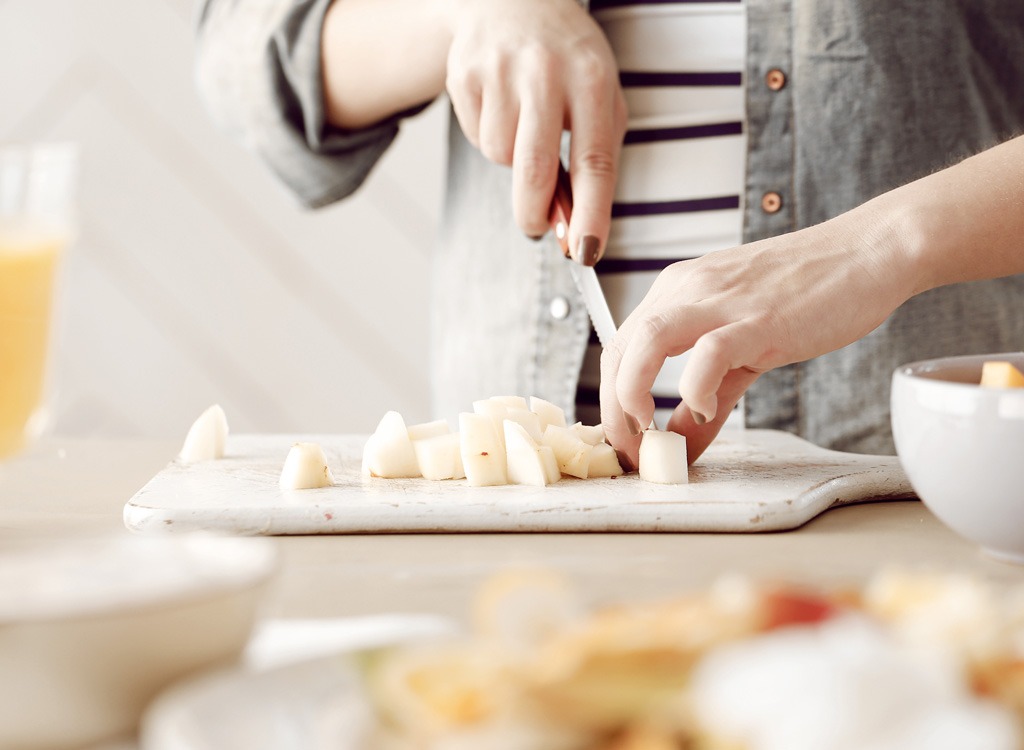
If you’re a home cook, those nicks your knife leaves in the cutting board are like a badge of honor. They remind you of all the time and effort you’ve put into cooking amazing things in the kitchen. (And, not to mention, we’re all about home cooking since eating out less is a surefire way to lose 10 pounds). Just make sure you’re using the right board. Plastic cutting boards are especially prone to those nicks and ridges, which also means that they’re also especially prone to something else: bacteria. Many people prefer plastic cutting boards because they’re easy to rinse off and wipe down, but the truth is that bacteria (like E. coli and salmonella) are more likely hide out in the crevices. You’re much better off using wood cutting boards or rubber cutting boards to avoid harmful bacteria.
Plastics
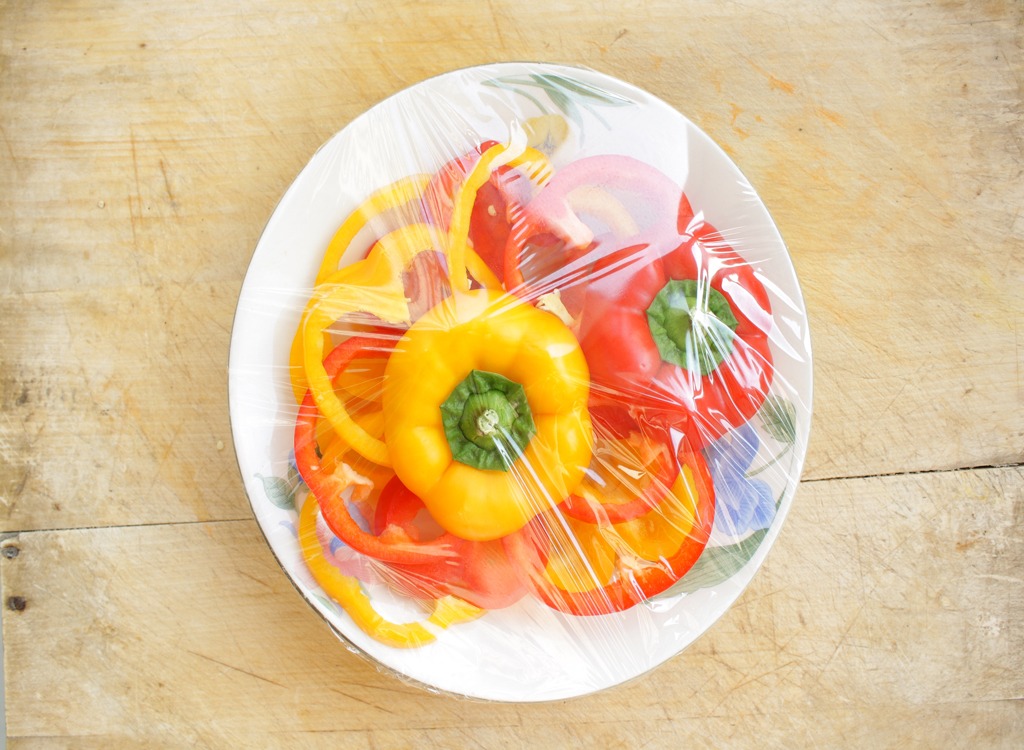
If you’ve joined the anti-BPA water bottle movement of recent years, good for you! BPA has been linked to cancer, decreased brain and heart health, and even infertility. However, BPA is found in more than just water bottles. A lot of cookware and containers are made with BPA-laced plastics, too, and when heated, the toxic effects of the chemical become even more dangerous. This is especially true when cooking acidic, fatty, and salty dishes. When heated in plastic, these kinds of foods increase the migration of BPA into your food. If we haven’t convinced you yet that life is not-so-fantastic with plastic, consider this: A recent study from Harvard University found a connection between BPA consumption and obesity. Yes, you read that right: cooking your food in plastic could undo all of those hard-earned weight loss wins. That’s what we call a major L.
